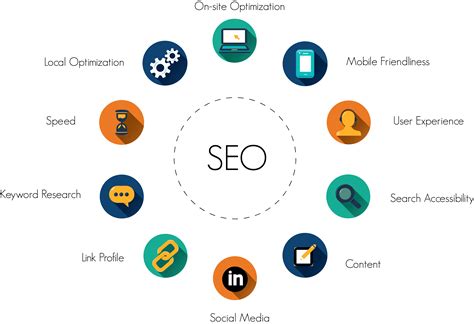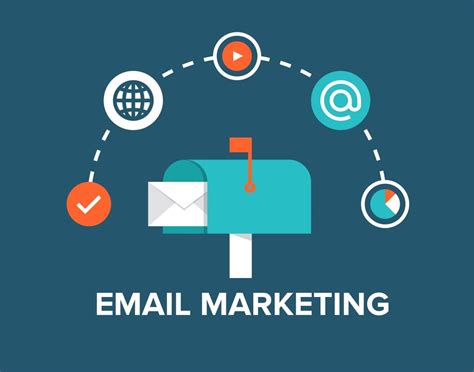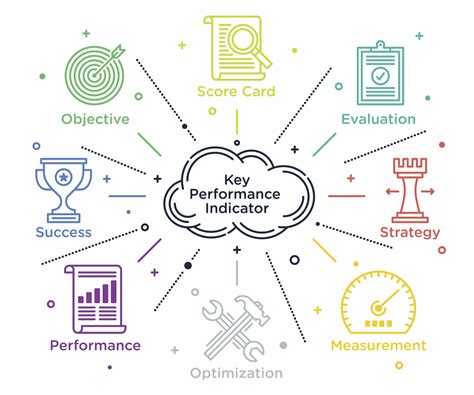Driving consistent engagement and conversions in today's competitive online landscape is no easy feat. However, there are several powerful methods to supercharge your digital marketing efforts and achieve tangible results. In this article, we will explore proven techniques that can help you enhance the effectiveness of your internet advertising campaigns.
1. Harnessing the Potential of Targeted Audiences
One of the cornerstones of a successful online marketing strategy lies in identifying and understanding your target audience. By delving deep into their preferences, behaviors, and demographics, you can tailor your message to resonate with them on a personal level. Utilize data-driven insights to craft compelling content that speaks directly to their needs and desires. Personalized campaigns have a higher chance of cutting through the noise and fostering long-term customer loyalty.
2. Unleashing the Power of Influencer Marketing
In the fast-paced world of social media, influencers have become key players in digital advertising. Collaborating with influencers who align with your brand values can significantly amplify your online presence and expand your reach. Their dedicated followers are more likely to trust recommendations from a familiar face, making influencer marketing a valuable tool to establish credibility and increase brand awareness. It is crucial to carefully select influencers whose audience closely matches your target market to ensure maximum impact.
3. Embracing the Art of Storytelling
In the digital age, consumers are constantly bombarded with information. To stand out amidst the clutter, it is essential to captivate your audience with compelling storytelling. By weaving narratives that evoke emotions and connect with your audience on a deeper level, you can create a lasting impression that resonates with them. Authentic storytelling humanizes your brand and sets you apart from your competitors. Combine this technique with engaging visuals to create a memorable and immersive experience for your audience.
Understanding Your Target Audience

Developing a comprehensive understanding of the individuals or groups you are trying to reach through your online marketing efforts is crucial for achieving success. By acquiring deep insights into your target audience, you can tailor your marketing strategies to effectively engage and appeal to their specific needs, preferences, and behaviors. This section will provide you with valuable information on how to gain a deeper understanding of your target audience and use this knowledge to create impactful marketing campaigns.
| 1. Conduct Market Research | Commence your journey to understanding your target audience by conducting thorough market research. This involves gathering data and information about your potential customers, including their demographics, psychographics, purchasing habits, and online behaviors. Analyzing this data will help you identify patterns and trends, allowing you to develop a detailed profile of your target audience. |
| 2. Create Buyer Personas | Once you have collected the necessary data, it is vital to use this information to create buyer personas. A buyer persona is a fictional representation of your ideal customer. By crafting detailed profiles that encompass the demographics, interests, goals, motivations, and challenges of your target audience, you can better understand their needs and tailor your marketing messages accordingly. |
| 3. Analyze Competitor Strategies | Gaining an understanding of your target audience also involves studying the marketing strategies employed by your competitors. Analyze their online presence, content marketing tactics, social media activities, and website usability to identify areas for improvement and differentiation. By assessing your competitors' strengths and weaknesses, you can refine your own online marketing strategies to better cater to your target audience. |
| 4. Utilize Social Media Listening | Social media platforms provide a wealth of information about your target audience. Engage in social media listening by monitoring conversations, comments, and feedback related to your industry, products, or services. This will enable you to gain insights into the thoughts, opinions, and preferences of your target audience, enabling you to shape your marketing efforts accordingly. |
| 5. Continuous Monitoring and Evaluation | Understanding your target audience is an ongoing process. Regularly monitor and evaluate the effectiveness of your marketing strategies to gauge their impact on your target audience. Utilize analytics tools to measure key performance indicators (KPIs) such as website traffic, conversion rates, and engagement metrics. This data will help you refine your strategies, ensuring that they remain aligned with the evolving needs and preferences of your target audience. |
Creating an Engaging Brand Narrative
A captivating brand story is crucial for successful online marketing. It allows companies to connect with their audience on a deeper level, differentiate themselves from competitors, and build strong brand loyalty. Crafting a compelling brand narrative involves weaving together various elements such as the brand's history, values, unique selling proposition, and customer experiences. By crafting a narrative that resonates with your target audience, you can effectively communicate your brand's essence and create lasting impressions.
1. Authenticity is Key
- Stay true to your brand's values and mission
- Showcase genuine customer stories and experiences
- Highlight the real people behind your brand
2. Emphasize the Unique Selling Proposition
- Identify what sets your brand apart from competitors
- Clearly communicate the unique benefits and value you offer
- Create a compelling tagline or slogan that captures your brand's essence
3. Create an Emotional Connection
- Evoke emotions by using storytelling techniques
- Appeal to your audience's aspirations, desires, or pain points
- Show how your brand can fulfill their needs and aspirations
4. Consistency Across Channels
- Ensure a consistent brand voice and messaging across all online platforms
- Use consistent visual elements, such as colors and fonts
- Deliver a seamless brand experience from website to social media
5. Engage and Interact with Your Audience
- Encourage user-generated content and testimonials
- Respond to customer feedback and inquiries promptly
- Create interactive content that encourages audience participation
By following these strategies, you can create a compelling brand story that resonates with your target audience, strengthens your online marketing efforts, and ultimately drives business growth.
Optimizing Your Online Presence: Harnessing SEO Techniques to Boost Visibility

Discover the art of utilizing effective search engine optimization (SEO) tactics to maximize your online visibility and drive targeted traffic to your website. By employing a variety of strategic techniques, you can enhance your website's ranking on search engine result pages, ultimately increasing your chances of reaching a larger audience. In this section, we will explore the power of SEO and its impact on improving your online visibility.
Engaging with Social Media Influencers
Social media influencers can play a crucial role in boosting your online presence and attracting a wider audience. By collaborating with influencers who have a strong following and credibility in your niche, you can effectively engage with your target market and increase brand awareness.
When engaging with social media influencers, it is important to approach the collaboration strategically. Firstly, research and identify influencers who align with your brand values and have a genuine connection with their followers. This will ensure that their promotion of your products or services appears authentic and resonates with their audience.
Once you have identified potential influencers, establish a partnership by reaching out to them with a personalized message. Clearly communicate your expectations and goals for the collaboration, while also emphasizing the benefits they will receive from working with you. This can include exposure to your audience, exclusive discounts, or co-creation opportunities.
When creating content for the collaboration, it is essential to provide influencers with creative freedom while incorporating your brand messaging. This will allow them to utilize their unique style and voice, making the content more engaging and relatable to their audience. However, ensure that your brand guidelines are communicated clearly to maintain consistency and authenticity.
Throughout the collaboration, actively engage with the influencers by liking, commenting, and sharing their content. This will not only strengthen your connection with them but also increase visibility to their followers. Additionally, consider running contests or giveaways in collaboration with influencers to further incentivize engagement and attract new followers.
Lastly, regularly analyze the impact of your collaborations by monitoring metrics such as reach, engagement, and conversions. This will help you assess the effectiveness of different influencer partnerships and make informed decisions for future collaborations.
In conclusion, engaging with social media influencers can greatly enhance your online marketing strategy by leveraging their credibility and reach. By carefully selecting and partnering with influencers, maintaining open communication, and analyzing results, you can successfully harness the power of influencer marketing to achieve your marketing goals.
Implementing Email Marketing Campaigns

In today's digital age, businesses are constantly seeking effective ways to connect with their target audience and drive engagement. One powerful tool that has stood the test of time is email marketing. With email marketing campaigns, businesses can communicate directly with their customers and prospects, delivering personalized messages that resonate with their recipients.
1. Crafting Compelling Content: One of the key elements of a successful email marketing campaign is the ability to create compelling content. Whether it's a catchy subject line or a well-written email body, the content should grab the attention of the recipient and entice them to take action. It is crucial to understand the target audience and tailor the content accordingly to ensure maximum impact.
2. Building a Quality Subscriber List: A strong email marketing campaign begins with a high-quality subscriber list. The focus should be on attracting subscribers who are genuinely interested in the business and its offerings. Building a subscriber list can be achieved through various methods such as opt-in forms on the website, social media promotions, or even offline events.
3. Segmentation and Personalization: To make the most of an email marketing campaign, businesses should segment their subscriber list based on various factors such as demographics, interests, purchase history, or engagement level. This allows for highly targeted and personalized content, increasing the chances of converting leads into customers.
4. A/B Testing for Optimization: Continuous improvement is key to any successful marketing campaign, and email marketing is no exception. A/B testing allows businesses to test different elements of their emails, such as subject lines, call-to-action buttons, or design layouts, to identify what resonates best with their audience. By analyzing the results, businesses can optimize their email campaigns for better engagement and conversion rates.
5. Monitoring and Analyzing Performance: Implementing email marketing campaigns is not a one-time effort but an ongoing process. Monitoring and analyzing the performance of email campaigns is crucial to identify areas of improvement and make data-driven decisions. Key metrics to track include open rates, click-through rates, conversion rates, and overall ROI. This data provides valuable insights for refining future email marketing strategies.
By effectively implementing email marketing campaigns, businesses can build stronger connections with their audience, drive customer loyalty, and ultimately achieve their marketing goals. With the right strategies, tailored content, and continuous optimization, email marketing remains a powerful tool in the online marketing arsenal.
Optimizing Content Promotion to Enhance Marketing Impact
In today's digital landscape, businesses are increasingly recognizing the power and value of content marketing. Crafting compelling and informative content is just the first step towards online success. To truly maximize the impact of your content marketing efforts, it is crucial to implement effective promotion strategies.
1. Strategic Social Media Engagement Leverage the potential of social media platforms to actively engage with your target audience. This involves creating and sharing valuable content across various social channels, facilitating discussions, and responding to comments and queries. By forging strong relationships and establishing a reputation as an industry thought leader, you can significantly enhance the visibility and reach of your content. | 2. Collaborative Outreach Initiatives Partnering with influencers, industry experts, and complementary businesses can amplify your content's exposure and widen your audience base. Joint webinars, guest blogging opportunities, and cross-promotion campaigns can generate valuable backlinks and drive traffic to your website. Collaborative initiatives also foster credibility and trust, leading to increased brand recognition and customer loyalty. |
3. Email Marketing Personalization Segmenting your email lists and tailoring your content to cater to specific customer preferences and interests enhances engagement and conversion rates. By leveraging automation tools, you can deliver personalized messages, recommend relevant products or services, and nurture leads through targeted email campaigns. Personalization fosters a sense of exclusivity and connection, fostering trust and loyalty among subscribers. | 4. Search Engine Optimization (SEO) Implementing an SEO strategy that focuses on optimizing your content can significantly enhance its visibility in search engine results. Conduct keyword research to identify trending terms and phrases relevant to your target audience. Incorporate these keywords naturally within your content, headers, and meta tags, and ensure your website is mobile-friendly and load speed optimized. By improving your search engine ranking, your content will reach a wider audience and drive more organic traffic. |
5. Data-Driven Analysis and Iteration Regularly monitor and analyze the performance of your content marketing initiatives. Utilize web analytics tools to identify trends, track user behavior, and gather insights into the effectiveness of different content formats, channels, and promotion strategies. Use this data to make informed decisions and continually refine your approach to maximize impact and achieve your marketing goals. | 6. Amplifying Evergreen Content Identify evergreen content pieces that have consistently performed well. Refresh and repurpose these assets to keep them relevant and engaging. Promote these pieces through various channels, such as social media, email newsletters, and guest posts to reach new audiences and drive continuous traffic. The longevity of evergreen content makes it a valuable asset for attracting and retaining customers over an extended period. |
By implementing these strategies, businesses can optimize their content promotion efforts and ensure their marketing messages reach the right audience, driving meaningful engagement, conversions, and long-term success.
Measuring and Evaluating Key Performance Indicators

To achieve success in the ever-evolving realm of digital marketing, it is crucial for businesses to regularly track and analyze the metrics that gauge the performance of their online campaigns. Evaluating key performance indicators (KPIs) allows marketers to gain valuable insights into the effectiveness of their strategies, enabling them to make data-driven decisions and optimize their online presence. This section explores the importance of tracking and analyzing these key metrics and provides guidance on how businesses can leverage this valuable information to enhance their online marketing efforts.
Identifying Relevant Metrics: In the vast landscape of online marketing, there is an assortment of metrics that can be tracked and assessed. These metrics vary depending on the specific goals of a particular campaign or business. By identifying and prioritizing the most relevant metrics, marketers can focus their efforts on measuring and evaluating factors that directly impact their desired outcomes. Whether it is website traffic, conversion rates, customer engagement, or social media interactions, choosing the right metrics to track is crucial for measuring the success of online marketing efforts.
Understanding Data Patterns: Once the key metrics are defined, it is important to interpret the data patterns to gain meaningful insights. Understanding how these metrics fluctuate over time can provide valuable information about the effectiveness of different marketing strategies and tactics. By analyzing the data patterns, marketers can identify trends, correlations, and areas of improvement. This understanding empowers businesses to make informed decisions, optimize their campaigns, and allocate resources more effectively.
Utilizing Tracking Tools and Technology: To ensure accurate measurement and analysis, businesses can leverage a variety of tracking tools and technologies designed specifically for online marketing. These tools provide real-time data, allowing marketers to monitor the performance of their campaigns and make timely adjustments if necessary. From web analytics platforms to social media monitoring tools, the right technology stack can streamline the tracking process and provide valuable insights into the performance of various marketing channels and tactics.
Iterative Testing and Optimization: Tracking and analyzing key metrics enables businesses to adopt an iterative approach to their marketing strategies. By conducting ongoing tests and experiments, marketers can continuously optimize their campaigns based on the insights gained from analyzing the performance metrics. Through constant monitoring and refinement, businesses can adapt to the ever-changing landscape of online marketing, improve their customer targeting and engagement, and ultimately drive better results.
Conclusion: Tracking and analyzing key metrics is an essential part of effective online marketing. By identifying relevant metrics, understanding data patterns, utilizing tracking tools and technology, and adopting an iterative testing approach, businesses can gain valuable insights and make data-driven decisions to enhance their online marketing efforts. By constantly monitoring and optimizing their strategies based on the analysis of key metrics, businesses can stay ahead of the competition and achieve their marketing objectives in the digital realm.
FAQ
What is online marketing?
Online marketing refers to the strategies and techniques used to promote products or services on the internet. It involves various methods such as search engine optimization (SEO), social media marketing, content marketing, email marketing, and paid advertising.
Is social media marketing important for online businesses?
Yes, social media marketing is crucial for online businesses. It allows you to build brand awareness, engage with your audience, and drive traffic to your website. By creating compelling content and establishing a strong online presence, you can leverage the power of social media platforms to expand your customer base and increase your sales.
What role does content marketing play in online marketing?
Content marketing plays a significant role in online marketing. It involves creating and sharing valuable, relevant, and consistent content to attract and retain a clearly-defined target audience. By providing informative and engaging content, you can establish yourself as an industry expert, build trust with your audience, and drive organic traffic to your website.
Do I need to invest in paid advertising for effective online marketing?
While paid advertising can be a valuable tool for online marketing, it is not a requirement. It depends on your budget, goals, and target audience. If you have the resources to invest in paid advertising, it can help accelerate your online marketing efforts and increase your visibility. However, there are many effective strategies that do not require paid advertising, such as search engine optimization, content marketing, and social media engagement.



